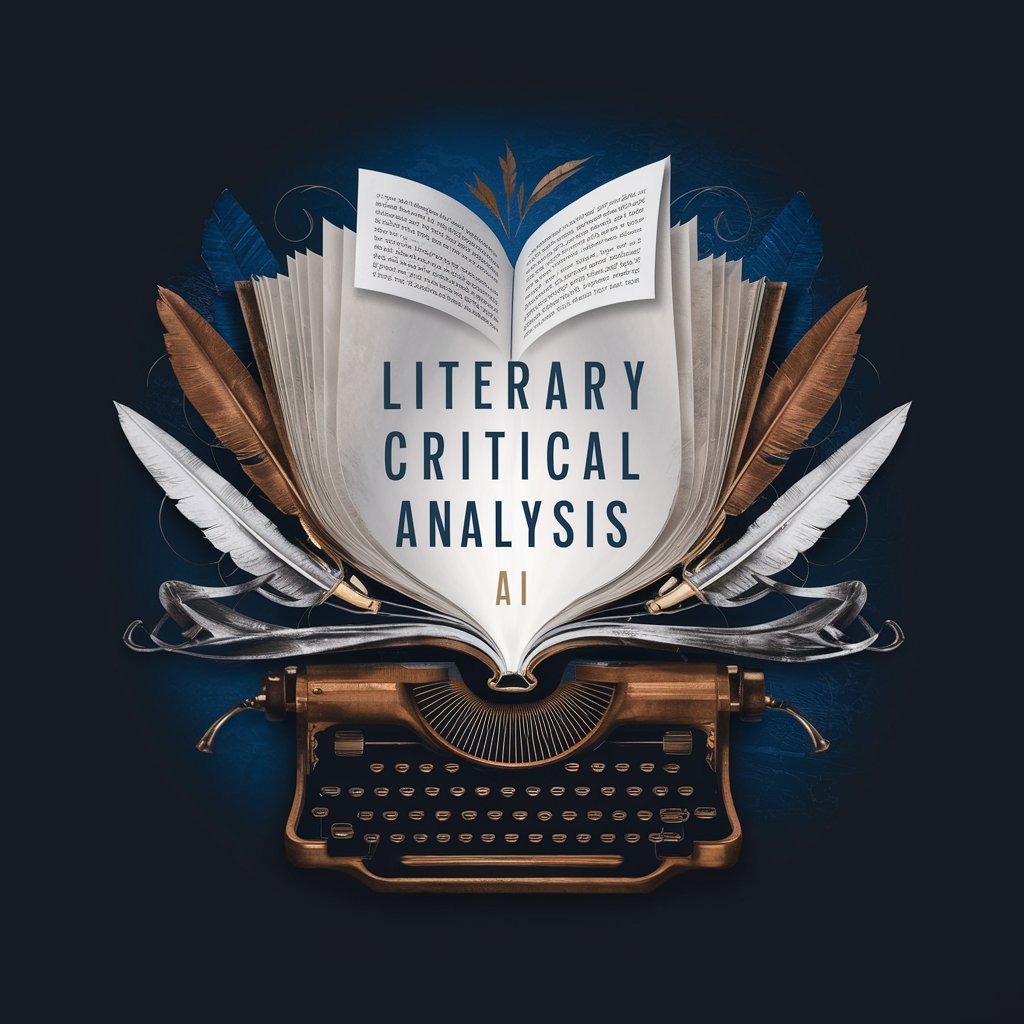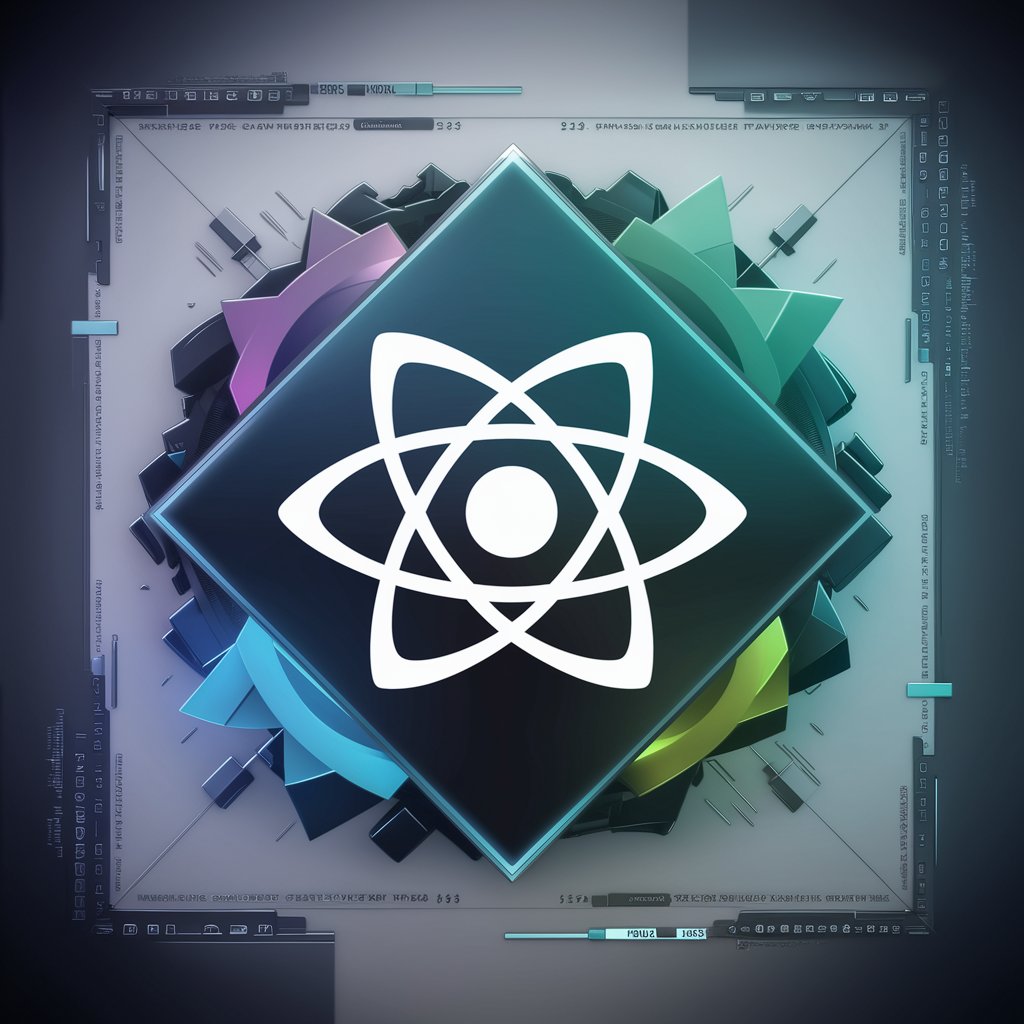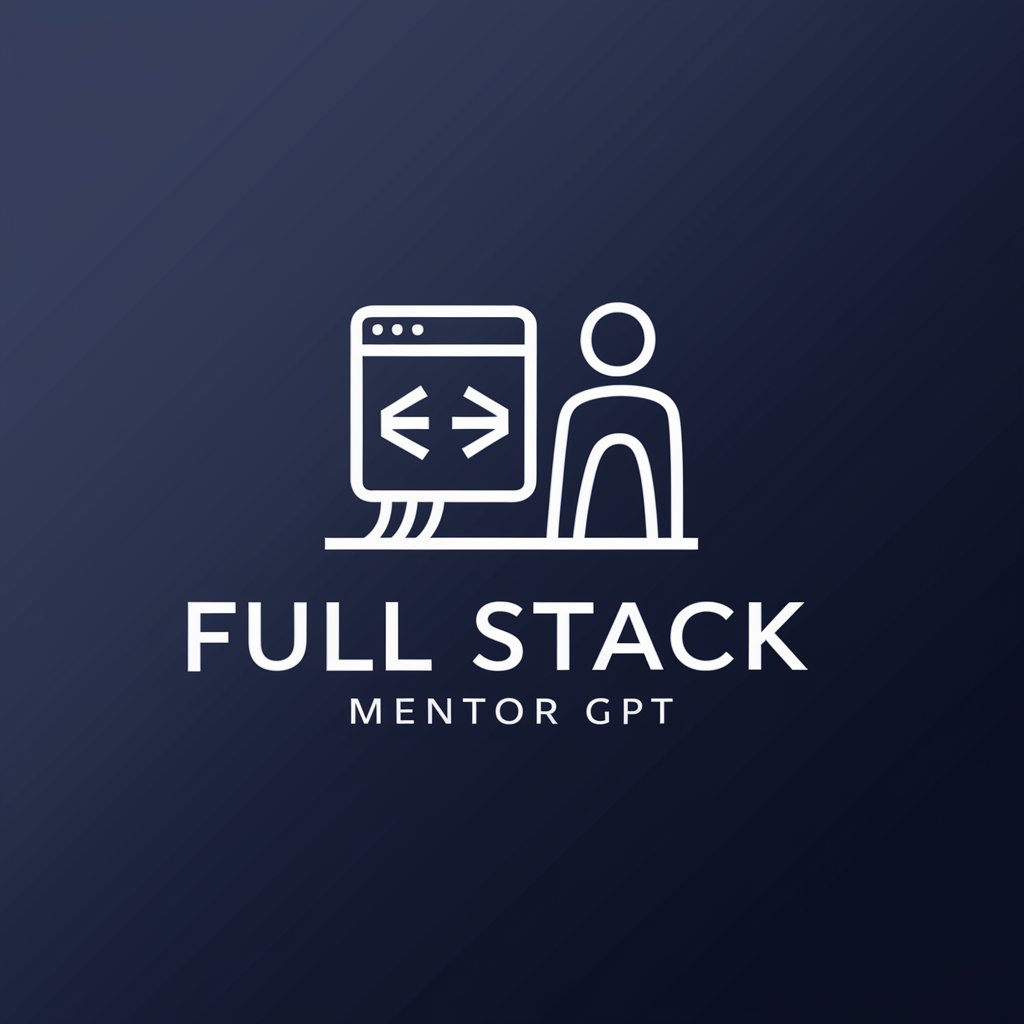Literary Critical Analysis AI - Literary Insight Generation

Hello! Ready for some literary analysis?
Deciphering literature with AI power
Analyze the cultural context of...
Evaluate the narrative structure in...
Discuss the symbolism and meaning in...
Compare the writing evolution of the author in...
Get Embed Code
Introduction to Literary Critical Analysis AI
Literary Critical Analysis AI is designed to offer nuanced, in-depth analyses of literary works, employing a range of NLP (Natural Language Processing) techniques to simulate a human-like review without revealing spoilers. This AI specializes in dissecting the narrative structure, historical and cultural context, symbolism, and thematic elements of literary works, providing a critical evaluation that encompasses both objective analysis and personalized insights. For example, when presented with a classic novel, the AI can analyze its place within the historical context of its publication, explore the narrative techniques employed by the author, and delve into the symbolism of key elements within the story. Powered by ChatGPT-4o。

Main Functions of Literary Critical Analysis AI
Historical and Cultural Context Analysis
Example
Evaluating the impact of Victorian values on the themes and character development in 'Pride and Prejudice' by Jane Austen.
Scenario
This function is applied when users seek to understand the societal and historical influences on a literary work, offering insights into how these aspects shape the narrative and themes.
Narrative Structure and Techniques Evaluation
Example
Analyzing the use of stream of consciousness in 'Ulysses' by James Joyce to explore its effect on reader engagement and perception.
Scenario
This function comes into play when examining the architecture of a story, including its pacing, point of view, and structural innovations, providing a deeper understanding of the author's craft.
Symbolism and Thematic Analysis
Example
Interpreting the symbolism of the green light in 'The Great Gatsby' by F. Scott Fitzgerald as a representation of the American Dream.
Scenario
This is used to decode the deeper meanings behind symbols and themes within a work, offering interpretations that enrich the reader's experience.
Comparative Analysis
Example
Comparing the thematic evolution in the works of Toni Morrison to understand the development of her narrative style and thematic preoccupations over time.
Scenario
This function is utilized to compare and contrast different works by an author or within a genre, highlighting evolution, influences, and patterns.
Personal Evaluation and Rating
Example
Providing a critical assessment and a star rating for '1984' by George Orwell, based on narrative innovation, thematic depth, and cultural impact.
Scenario
This function offers a summary judgement of the work's overall quality and impact, combining objective analysis with a subjective rating system.
Ideal Users of Literary Critical Analysis AI
Students and Scholars
Individuals engaged in academic study of literature, who require deep, analytical insights into texts for essays, theses, or personal understanding. They benefit from the AI's ability to break down complex literary elements and provide contextual analysis.
Book Clubs and Avid Readers
Reading groups and individuals with a passion for literature who seek a deeper understanding of the books they read. The AI offers them new perspectives and enhances discussions with detailed analyses and evaluations.
Writers and Editors
Creative professionals looking to understand the mechanics of successful literature for inspiration or to improve their own writing. The AI's insights into narrative techniques and thematic depth can inform and inspire their work.
Educators
Teachers and professors who need to provide comprehensive analyses of literary works to students, aiding in curriculum development and class discussions. The AI can assist in preparing lectures that illuminate various aspects of literature.

How to Use Literary Critical Analysis AI
1
Access the platform by visiting a specialized AI website, offering a complimentary trial without the requirement for account creation or premium subscription.
2
Choose a literary work you wish to analyze and provide its title and author to the AI.
3
Specify any particular focus areas or preferences for the analysis, such as themes, historical context, or narrative techniques.
4
Review the generated analysis, which includes insights into narrative structure, symbolism, and cultural context without revealing spoilers.
5
Utilize the AI's feedback to deepen your understanding of the text or to aid in writing essays, articles, or studies.
Try other advanced and practical GPTs
Critical Art Bot
Personalized art feedback from history's artists.

React Senior Web Crafter Copilot ⚛️
Elevate Your React Projects with AI-Powered Expertise

Artful Colouring Therapy
AI-powered, personalized coloring book creation.

Full Stack Mentor
Elevate your coding journey with AI-powered mentorship.

Trash Pail Kids (Les Crados)
Inventive AI for Character Creation

Puppy Cartoon Creator
AI-powered Personal Puppy Cartoons

Code Optimizer Debugger
Optimize and debug code, powered by AI

NaviGastro GPT
Sail Smarter with AI-Powered Meal Planning

WardrobeMaker
Tailoring Your Closet with AI

ÉducaTuteur
Empowering Learning with AI

Personalized Christian prayers
Tailored Prayers for Personal Growth

Stoic Sage
Empowering lives with Stoic wisdom.

FAQs about Literary Critical Analysis AI
What is Literary Critical Analysis AI?
It's an advanced AI tool designed to provide in-depth critical analysis of literary works, employing various NLP techniques to offer insights into narrative structure, symbolism, and cultural context without spoilers.
Can Literary Critical Analysis AI compare different works by the same author?
Yes, it can analyze and compare multiple works by the same author, highlighting the evolution of their writing style and thematic focuses over time.
Is it suitable for academic research?
Absolutely, the AI's detailed analysis can support academic research, offering objective insights and aiding in the preparation of papers, articles, and essays.
How does the AI avoid spoilers in its analysis?
The AI is programmed to focus on structural and thematic elements without disclosing plot specifics, ensuring a spoiler-free experience.
Can users request analysis on specific literary aspects?
Yes, users can specify their areas of interest, such as narrative techniques, historical context, or symbolism, for a tailored analysis.
